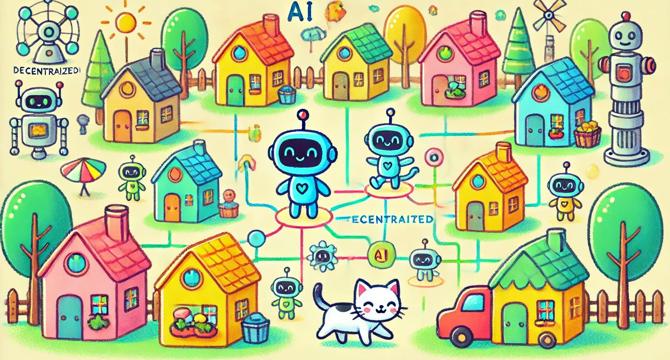Hackernoon
2w
359

Image Credit: Hackernoon
What If AI Grew Up in a Neighborhood, Not a Castle?
- Centralized AI operates like a castle, with large data centers controlling data and decision-making.
- Decentralized AI functions like a neighborhood, with distributed AI across small computers, fostering collaboration and privacy.
- Centralized AI's drawbacks include data vulnerability and lack of transparency, while decentralized AI empowers individuals and ensures data ownership.
- Tools like Aleph Cloud facilitate decentralized storage and computing, enhancing privacy and security.
- Decentralized AI promotes transparency, trust, and control over data, benefiting sectors like healthcare, finance, and agriculture.
- Challenges of decentralized AI include speed limitations, complexity in organization, and difficulty in updates.
- Implementing decentralized AI requires building fair and efficient systems from the ground up, prioritizing privacy and resilience.
- In summary, decentralized AI offers improved privacy, transparency, and user control compared to centralized systems, paving the way for a more inclusive and trustworthy AI future.
Read Full Article
21 Likes
For uninterrupted reading, download the app